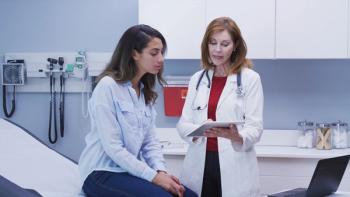
Nurse Mentors Help Move Careers Forward
No one learns everything they need to know about nursing in school or on the job alone.
About a decade ago, I was fortunate to have a pair of oncology nurses who helped me rise in my career. They were not my coworkers, but they mentored and supported me when I first made a career change to oncology after being an ICU nurse. I had been interested in oncology since nursing school, and at the time, my dad’s recent cancer diagnosis also got me thinking I should learn more.
As a daughter and a nurse, I wanted to hear what patients were experiencing in their lives outside of the clinic or hospital. I wanted to know how we could do a better job of helping people going through cancer, and all that goes with it — the everyday life experiences of patients that nurses and doctors don’t see in the clinical setting. Before I left critical care, I began attending support group meetings in the hospital basement for cancer survivors and their caregivers in the community.
The group was led by three women, two of whom were oncology nurses working outside the hospital setting. Bonnie and Lisa were warm, caring, and open. Their honest and knowledgeable approach helped people find answers and solutions. They did the extra footwork that went beyond what patients got from their medical treatment team.
They brought in local speakers who talked about different topics of interest to the group, connecting the patients and caregivers to resources and people in the community. They kept everyone focused and on track, moving along through topics so that the session didn’t deteriorate into a venting or chit chat session. They were willing to stay late and talk with patients who had specific issues they wanted to discuss privately.
They also helped make connections between people (who agreed to do so) who might be able to help each other, which was a way of delegating their own work. They always followed up by making sure people got their questions answered, pursued the resources, or made the connections. Their resourcefulness was probably their greatest gift to the group.
After attending for a while and making the switch from ICU to oncology, they invited me to speak as part of a panel, and then by myself. I spoke many times to the group after that, on various topics, mostly around physical activity and wellness. Even after I left the hospital to start my own business around survivorship needs, they invited me back and started promoting my community classes and projects.
In the clinical setting, nurses on the unit would generally call a social worker or case manager or counselor to come talk with the patient. Bonnie and Lisa showed me how you could help people outside of the clinical setting, and how to engage people in improving their quality of life by making social connections and finding ways to access resources they didn’t learn about during their medical treatment. Their work served an important need and filled a necessary gap in complete cancer care.
If you’re seeking a mentor, or wanting to mentor another nurse, here are some important parts of the mentoring relationship, for both parties:
- Observing and modeling behavior is the key, so remain professional, nonjudgmental, and demonstrate good people skills in all communication.
- Learning to delegate when it’s appropriate and ensure follow-through. Teach others to do the same.
- Building trust through honesty, openness, and warmth.
- Allowing the learner to practice skills, make mistakes, and allow for improvement.
- Providing constructive and timely feedback for the learner, and answer questions.
- Establishing, forming, and maintaining professional relationships, both in the mentoring relationship, and with important others outside of that relationship.
- Finding opportunities to move forward and grow professionally, and personally.
No one learns everything they need to know about nursing in school or on the job alone. The aim of nursing is to be able to improve the patient or client’s overall quality of life and well-being whenever possible. Nurses depend on each other to pass on wisdom, which benefits nurses and patients alike, and solidifies the positive aspects of our profession to accomplish that aim.
Newsletter
Knowledge is power. Don’t miss the most recent breakthroughs in cancer care.
















































































